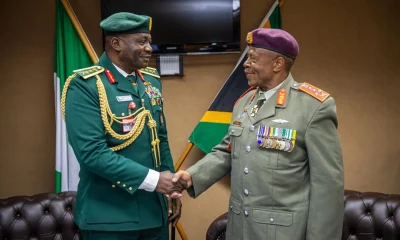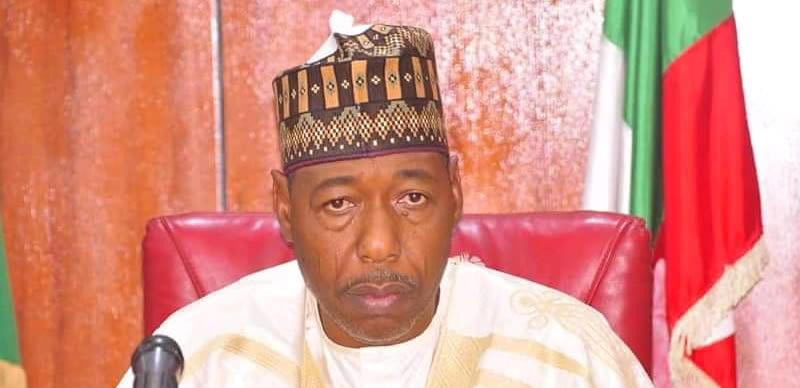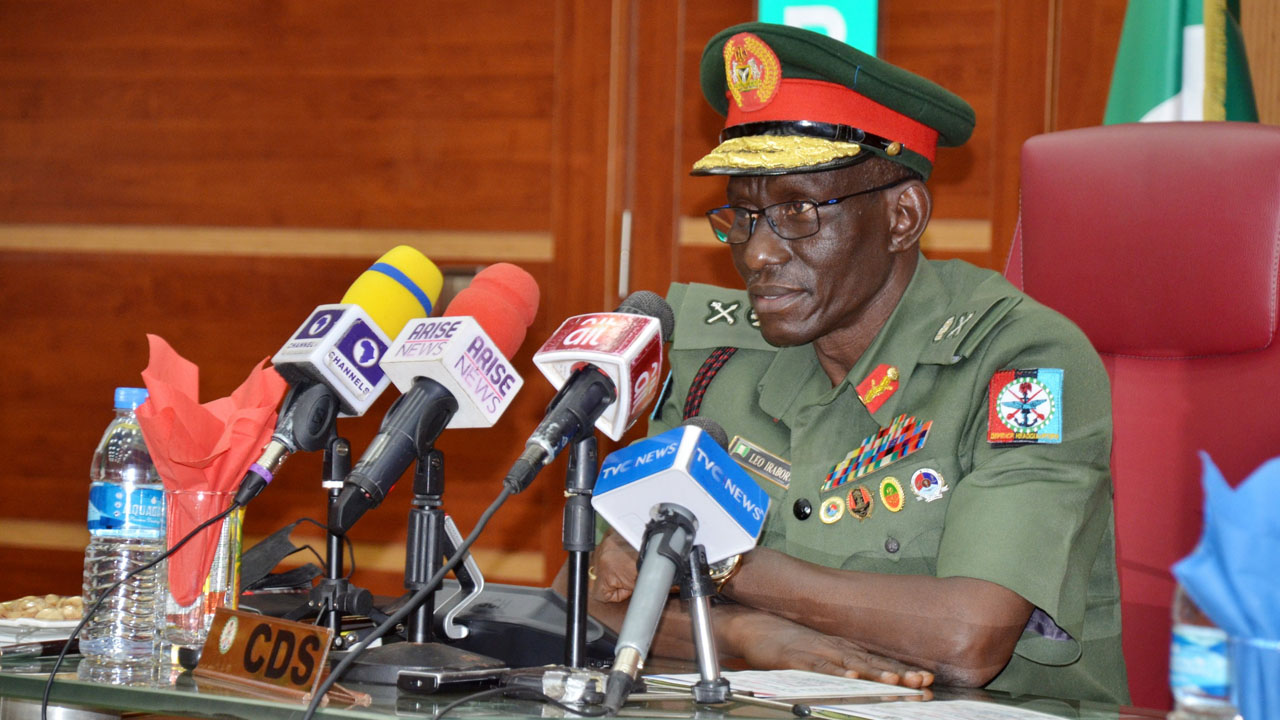Crime
Release of Boko Haram terrorists: We are unaware, FG insists
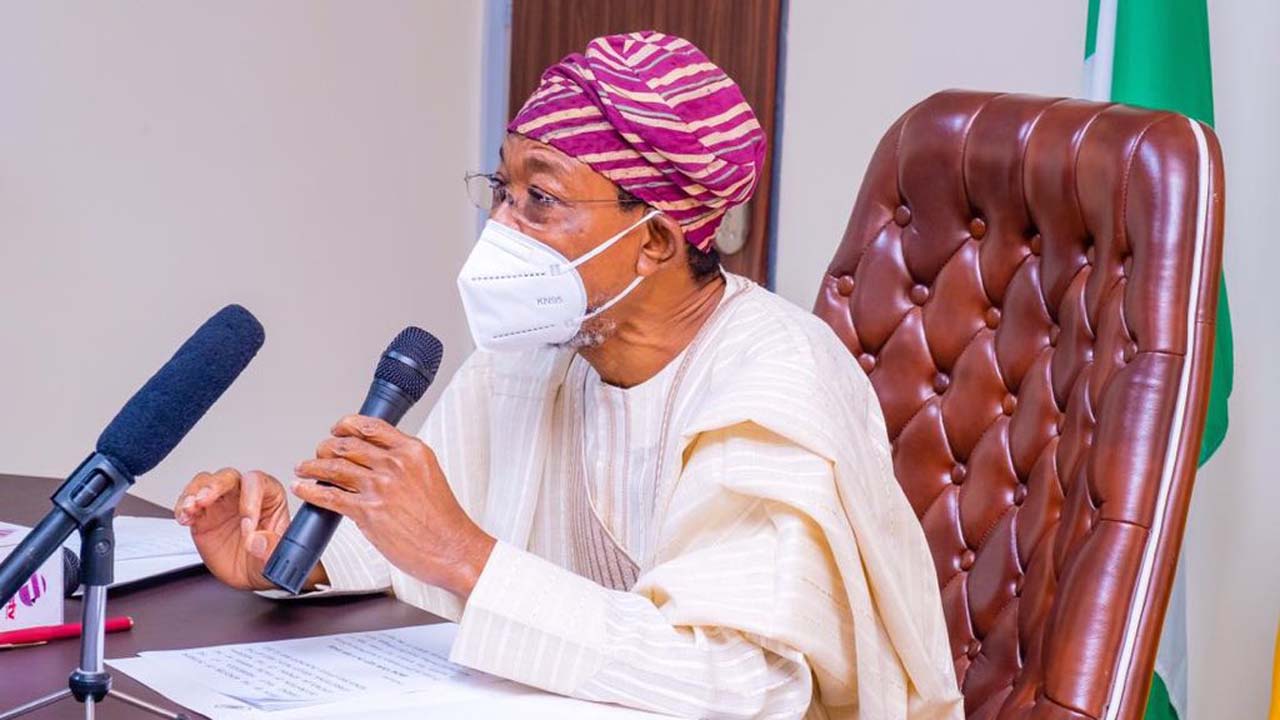
One week after the discreet release of about 100 Boko Haram terrorists from the Kirikiri medium and maximum security facilities in Lagos, the Nigerian government kept mum and refused to acknowledge there was any such incident.
The prisoners of state were allegedly set free as part of a swap deal for the release of the 23 remaining passengers who were abducted in the Abuja-Kaduna bound train on March 28. But since the release, there have been varied reactions, mostly condemning Federal Government’s action and querying its rationale.
Just as there has been no word from the Ministry of Interior, which supervises the Nigerian Correctional Service (NCOs) nor the Ministry of Information and Culture, the military top brass have also refused to admit the prisoners’ release or give any information regarding the incident.
Disturbed by the deafening silence across the board, The Guardian sought answers to some questions being asked by Nigerians from government officials who ought to know, with a view to ascertaining why the terrorists were released, whether it was indeed part of a swap deal for hostages and why the release was shrouded in secrecy.
While the office of the Minister of Interior said that the custodial centres were in no position to answer the queries of Nigerians, directing that they be sought from the police and the army, the Nigerian Correctional Service (NCOs), in whose care the alleged terror suspects were kept and released, offered little or no explanation either.
Specifically, Sola Fasure, who is the Special Assistant (on media) to the Minister of Interior, Rauf Aregbesola, explained that the information being sought regarding the said release of over 100 Boko Haram terrorists awaiting trial at the Kirikiri prison and related issues, could only be obtained from the police, the NigeriaAarmy and the office of the National Security Adviser (NSA), who are usually the agencies that bring the terrorists for holding pending their trial and sentencing.
He said: “The custodial centres don’t determine who comes in or goes out. It is not for them to release and detain but for those who come with the warrant. The Police, the NSA or the army are the government agencies to know the answers.”
He explained further: “If it is awaiting trial inmates, it is those who brought the inmates that can take them away, the custodial centres have no business with who takes them out or brings them in and suspects are routinely moved.”
In his response, the NCoS, Public Relations Officer (PRO), Abubakar Umar told The Guardian that he is yet to be briefed on the development.
Responding to a WhatsApp query on the issue one week after, he replied: “Not on my desk yet, as such it’s difficult to comment.”
On his part, the Public Relations Officer (PRO), Lagos Command of the NCoS, Rotimi Oladokun directed our reporter to the national PRO, claiming he was unaware of the development.
Recall that the actual release of the prisoners happened at Kirikiri Prisons, which is under the Lagos Command of NCOs.
Contacted to confirm if indeed, the terrorists were released as part of a swap deal for hostages and also whether there was a monetary exchange before the government could secure the release of the Abuja-Kaduna train passengers, the Defence headquarters insisted that the passengers were rescued through a non-kinetic operation by the Nigerian Armed Forces, in conjunction with security agencies in the country.
Director of Defence Information, Major General Akpor told The Guardian on the telephone that the response of Defence headquarters on the issue in its last Defence Media Operations (DMO) briefing remained its position on the matter.
He, however, disclosed that it would send more reaction on a later date soon. According to him, “We would get back to you soon with our reaction.”
The Director, Defence Media Operation (DMO), Major General Musa Danmadami, had refused to give details on the rescue operations.
Gen Danmadami, while responding to questions from newsmen on how the hostages regained their freedom had said: “Wanting to know details is not the issue for now. The important thing is that these people have been held captive for six months and the Defence Headquarters (DHQ), in collaboration with other security agencies, through the committee that was set up by the President and Commander-in-Chief of the Armed Forces, Muhammadu Buhari, secured their release.
“We already know the trauma that the abductees and their family members went through. Giving you more details will subject them and their families to more trauma.”
Reacting on the issue and how government officials have been dodgy with information or owing up to the release of insurgents, former Army Intelligence Officer, Col. Hassan Stan-Labo (rtd.) said the Minister of Information or the authorities of the Nigeria Prison Service should ideally speak up on the issue.
He decried running a country where the government of the day does not feel citizens are entitled to be briefed on developments regularly. “Things just go on. Those running the administration have turned themselves into the masters, rather than the citizens being the masters. In a democracy, the concept is that power rests with the people. But it is different with this administration and sadly, Nigerians have accepted the position too.”
To change the situation, Stan-Labo said Nigerians must continue to hold the government accountable, including journalists who could sue the government for breaching the Freedom of Information (FOI) Act.
Stan-Labo noted that there are certain government/military actions that could be shrouded in secrecy, he however said Nigeria got to this stage because “we allowed the insurgents to fledge.
“If Nigeria had been proactive from the beginning of the war against terrorists, we would not find ourselves where we are busy negotiating with them because we have to save the lives of innocent Nigerians. Nigeria Army is a force to be reckoned with in terms of operational capabilities. I talk as someone who has been involved in battles; I fought with this military in Liberia, Sierra Leone, Dafur, Bakassi Penisula and other places.”
Crime
Police Foil Cult Initiation in Anambra, Arrest Six Suspects
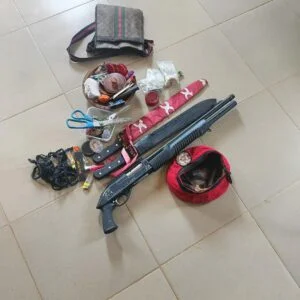
The Anambra State Police Command has foiled a cult initiation ceremony in Nawfia, Njikoka Local Government Area of the state.
Spokesperson for the Command, SP Tochukwu Ikenga, disclosed this in a statement issued on Tuesday in Awka.
According to Ikenga, the operation was carried out by police operatives around 9:30am on June 15, leading to the arrest of six suspects at the scene.
Recovered during the raid were one Jojef pump action gun, two cartridges, and a golden-coloured Lexus SUV with registration number ATN 202 AE. Other items found include two cutlasses, two scissors, a cap bearing the inscription of the Supreme Vikings Confraternity, charms, and substances suspected to be hard drugs.
“They are currently undergoing police interrogation to get more insight into their modus operandi, after which the case will be charged to court on the conclusion of the investigations,” Ikenga stated.
The police spokesperson reassured residents of the command’s unwavering commitment to fighting cultism and other related crimes across the state.
Crime
Court remands 2 over alleged attempted murder

An Ikeja Magistrates’ Court, Lagos, on Wednesday, remanded two persons, Olaitan Fasasi and Kehinde Tobiloba in a correctional facility over alleged attempted murder.
Fasasi, 40, and Tobiloba, 26, whose addresses were not provided, are being charged with conspiracy, attempted murder and membership of a secret society.
The Magistrate, Mr L.A Owolabi, did not take the plea of the defendants for want of jurisdiction.
Owolabi directed the police to forward the case file to the Director of Public Prosecution for legal advice.
He thereafter adjourned the case until May 31 for mention.
The Prosecutor, Josephine Ikhayere, told the court that the defendants committed the offences at about 5.02p.m on Feb. 15, at Mushin, Lagos.
She said that Fasasi, Tobiloba and others now at large, attempted to commit murder by shooting at a resident, Alfred Ademola.
“They armed themselves with a locally made gun. They belong to Eiye Confraternity, a group proscribed by law,”, she said.
Ikhayere said that the offences contravened Sections 230(1) and 411 of the Criminal Law of Lagos State, 2012.
He said that the actions of the defendants also contravened Section 2(3)(a)(b)(c)(d) of the unlawful societies and Cultism Law of Lagos State Law.
Crime
Man jailed 3 months for stealing mobile phone

An Area Court in Jos, on Tuesday, sentenced one Jeptha John, to three months imprisonment for stealing a Redmi mobile phone valued at N165, 000.
The judge, Shawomi Bokkos, sentenced the John after he pleaded guilty to the offence.
The judge, however, gave the convict an option to pay N20, 000 fine and N50, 000 restitution to the complainant.
Bokkos said that if the convict defaulted in paying the restitution, three months should be added to his sentence to make it six months imprisonment.
Earlier, the police prosecutor, Insp Monday Dabit, told the court that the case was reported at the B Division Police Station, Jos, on Dec. 1, 2024, by Ms Nerat Danjuma.
He said that the complainant alleged that the defendant trespassed into her house and stole her mobile phone valued at N165, 000.
The prosecutor further told the court that the offence contravened the Plateau State Penal Code, Law of Northern Nigeria.
-

 Headlines4 years ago
Headlines4 years agoFacebook, Instagram Temporarily Allow Posts on Ukraine War Calling for Violence Against Invading Russians or Putin’s Death
-

 Headlines4 years ago
Headlines4 years agoNigeria, Other West African Countries Facing Worst Food Crisis in 10 Years, Aid Groups Say
-

 Foreign4 years ago
Foreign4 years agoNew York Consulate installs machines for 10-year passport
-

 News1 year ago
News1 year agoZero Trust Architecture in a Remote World: Securing the New Normal
-

 Entertainment3 years ago
Entertainment3 years agoPhyna emerges winner of Big Brother Naija Season 7
-

 Headlines2 years ago
Headlines2 years agoNigeria Customs modernisation project to check extortion of traders
-

 Entertainment2 years ago
Entertainment2 years agoMovie download platform, Netnaija, announces closure
-

 Economy2 years ago
Economy2 years agoWe generated N30.2 bn revenue in three months – Kano NCS Comptroller




